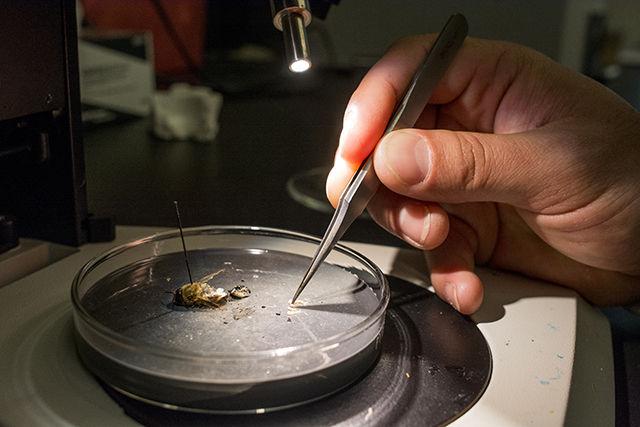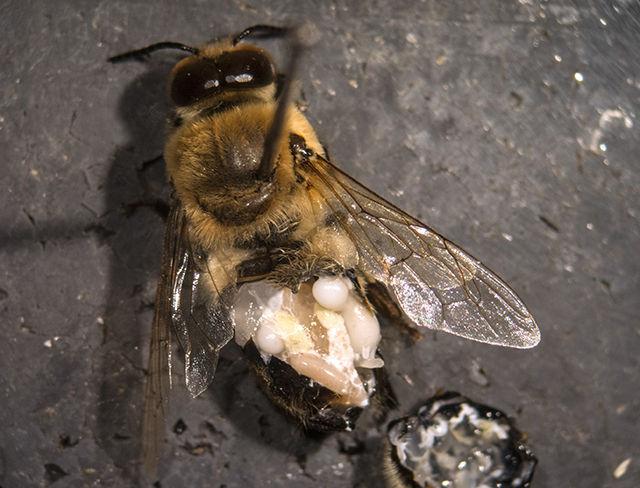The Queen and Disease Clinic at NC State, which was started by David Tarpy, a professor of entomology at NC State, has garnered a reputation for its in-depth analysis about the honey bee queen’s reproductive quality and colony health.
According to Deniz Chen, a research technician for the clinic, the clinic was initially started to help beekeepers make decisions about which queens to buy and where the best place to buy them would be.
“Dr. Tarpy started it as a service for beekeepers to essentially analyze their queens for them and help them make informed decisions both in queen breeding and managing hives that already have,” Chen said.
The goal of the clinic is to help beekeepers improve breeding methods so that their hives can be sustained for an extended period of time, according to Chen.
“If you’re a queen breeder, it’ll help you improve your breeding methods,” Chen said. “Better queens will create improved offspring so in the field they’ll make better honey and do more pollination. They’ll also be less likely to die and suffer colony collapse disorder.”
In addition, Chen said the clinic will help beekeepers create more efficient queens and also check the beekeepers queen to see if it’s failing.
Chen also said that one of the goals of the clinic is to help beekeepers reduce the cost of maintaining a large number of hives.
“Queens cost $25 each, and say you’re a beekeeper with a hundred hives, that works up to be a lot of money,” Chen said. “What we can do is help you make an informed decision by testing a small sample of your queens for you and tell you whether you need to spend that money or not.”
Moreover, Chen said that the clinic will begin offering a genetic diversity measurement of all the bees contained in a particular hive.
“We remove the spermathecal, which is the structure that contains all the sperm from the males the queen has mated with,” Chen said. “We analyze that to determine the genetic diversity measurement which is very important as to how well a hive is doing.”
Chen said that the clinic primarily caters to beekeepers, but it also does analysis for academic researchers who need bees analyzed.
Ravi Dixit, a senior studying microbiology and human biology, said one of the main reasons that honeybees are so important to the ecosystem is their contribution to crops and food sources.
“Honeybees are responsible for $15 million of crop value,” Dixit said. “They are also responsible for 80 percent of all the pollination that occurs [and] pollinate a wide range of fruits and vegetables.”
Dixit also said one of the reasons honeybees are so widely researched is because they are dying from something called colony collapse disorder.
“Honeybees are dying pretty fast, which is why they are being researched. They’re dying from colony collapse disorder, which is when worker bees disappear from the colony, and this has been a major problem because there’s no proven reason as to why it’s happening,” Dixit said.
The seminal vesicles of a honeybee drone viewed through a compound microscope.









